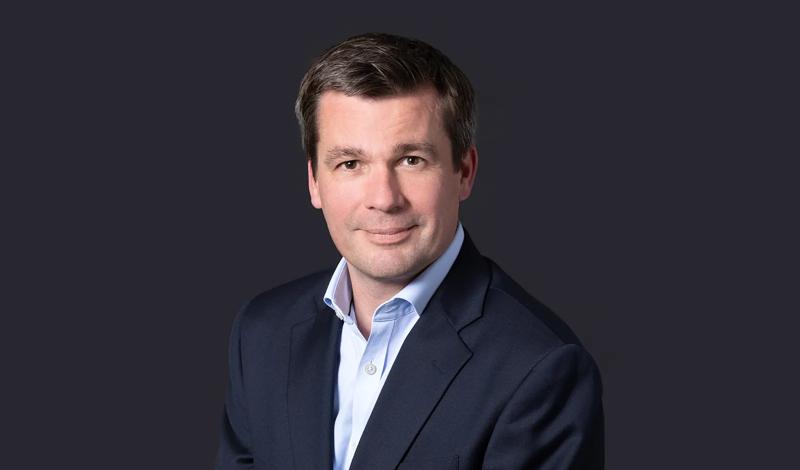(Don’t) look up!
Adam McKay’s recent disaster satire movie 'Don’t Look Up' has certainly divided critics and audiences, perhaps by trying to say and do too much.
Adam McKay’s recent disaster satire movie 'Don’t Look Up' has certainly divided critics and audiences, perhaps by trying to say and do too much. The aspect of the film that piqued my interest and acted as the spark for this article was its attempt to offer a parable of a distracted society.
Reflecting on the current dynamic in our sector a little further.
Increasingly it can feel like the agenda is set by the fast paced 24 hours news cycle and not the civic importance of an issue. Social media can also drive the intensity and speed issues hit the public consciousness. One moment, we are grateful that at last a key issue for our sector gets to the top of the agenda. However, all too often this can feel transitory, and it can quickly fade from view to be replaced by something that feels far less deserving of national attention.
Whether it is drawing on your inner coach, adopting a coaching leadership style or starting a coaching programme in your Trust, perhaps now is a very good time to reflect on what coaching can offer you, your organisation and leaders.
This can be compounded by the allure of quick decision-making – both at national and institutional level. Absolutely there is a time and place for decisive quick decisions but equally sometimes the best response to a situation is "to take a beat” so that you can really understand what you are faced with and choose a more appropriate and effective response. Recognising that sometimes it is the pressure of looking indecisive that can cause people to jump and make quick decisions, there can be a bravery to pausing. If you do pause, you may want to think carefully about how you communicate to reassure people you have ‘got this’.
Only with hindsight we will be able to truly identify the end of the pandemic in this country, but we certainly appear to be able to say with confidence that we are much closer to the end than the beginning. It is therefore worth reflecting on how we respond to a crisis and what this means for leaders right now.
There are three broad and distinct phases to responding to a crisis:
- Reacting - the initial crisis response.
- Recovery - dealing with the impact.
- New landscape - it is likely that there will be a new reality rather than a moment in time where we go back to how things were before the crisis.
It can be tempting to view the three phases as linear but the reality and the challenge for trust leaders is that the response is dynamic.
The role of leadership is perhaps more complicated now than at the early stages of the pandemic. Different parts of your organisation will be at different points in the response process and the role of leaders in helping your school trust navigate the response is critical. Choosing what to focus on is vital.
So, the encouragement is simply this – look up. Stay open longer. Be considered in choosing your priorities.
Stay curious longer
Michael Bungay Stanier makes a compelling case in his TedX talk How to tame your Advice Monster where he urges the audience to "stay curious a little longer”. It is very simple advice (no pun intended) that can be extremely impactful. That said, it can be extremely difficult to follow.
In brief, he argues that giving advice has become a default response and his encouragement is to stay curious a little bit longer. There are several advantages to this he highlights but here I will pick out two. By resisting the urge to jump in with your solution, he makes the point you give agency and empower others. Ultimately, this will build capacity in your trust. He also highlights something that we all intuitively know. Rarely is the first challenge the real challenge. Are you resolving the right problem? Sometimes it can take several attempts to be able to say with confidence that you have identified the real challenge.
Inner coach
Whether it is drawing on your inner coach, adopting a coaching leadership style or starting a coaching programme in your Trust, perhaps now is a very good time to reflect on what coaching can offer you, your organisation and leaders.
A key ingredient of coaching is time and space. For leaders, drawing on coaching attributes would mean making sure we are more aware, not only of what was being said, but how it was being said, of tone of voice, particular words and phrases or body language – and not being distracted by whatever meeting was next or by trying to offer up our own solutions.
Final thought…
Look out for yourself. This may feel selfish, particularly if you subscribe to the basic tenets of servant leadership. There is good reason though why airline safety announcements advise you in the event of loss of cabin pressure to put your mask on first before helping others.
I would conclude by going back to where I began with an encouragement to look up and stay in the words of Stanier "curious a little longer”.
This article was first published in Trust, a journal for executive and governance leaders issued by the Confederation of School Trusts.
Contact

Nick MacKenzie
Partner
nick.mackenzie@brownejacobson.com
+44 (0)121 237 4564






































